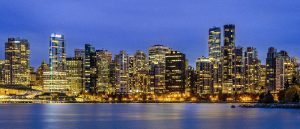 BRITISH COLUMBIA – March 2021 marked a full year since the COVID-19 pandemic pushed British Columbia into a state of emergency. Over the past year, the world has traversed a balancing act between protecting the health and safety of individuals while simultaneously attempting to minimize the economic fallout necessary to do so.
BRITISH COLUMBIA – March 2021 marked a full year since the COVID-19 pandemic pushed British Columbia into a state of emergency. Over the past year, the world has traversed a balancing act between protecting the health and safety of individuals while simultaneously attempting to minimize the economic fallout necessary to do so.
CPABC recently released a year-in-review snapshot that highlights where BC’s economy stands a year later, focusing on employment, retail spending, business activity, real estate, and economic forecasts. It compares where we were pre-pandemic, where the low points were, and where we stand today. Here are some takeaways:
BC’s Labour Market
Low point: Workers across the province were displaced at record rates following the March 2020 shutdown, and by April 2020 BC’s total employment had declined by over 400,000. This decline meant that nearly one in every seven workers in the province had lost their jobs and the unemployment rate reached 13.4 per cent at its peak.
Where we are: BC has led the country in employment gains, with the workforce growing in 11 consecutive months. By March 2021, BC’s total employment had increased by over 100,000 compared to March 2019. However, challenges remain.
The vast majority of the job gains are related to the public sector. While public sector jobs are critical, private sector employment has been much slower to rebound. The growth in employment has also lagged behind the growth in the labour force. Between March 2019 and March 2021, the labour force grew by around 175,000 workers, well above the gain in employment.
As a result, nearly 200,000 were unemployed and BC’s unemployment rate stood at 6.9% in March 2021, well above pre-pandemic levels (4.7% in March 2019). Further, employment in some industries such as hospitality and tourism remain down considerably.
Retail Spending In BC
Low point: With the shutdown of many businesses, fear around the virus, and physical distancing requirements, retail spending dried up. In BC, monthly spending in retail stores fell by $1.4 billion as of April 2020 compared to April 2019 – a decline of nearly a fifth (19.7 per cent). As overall consumer spending accounts for a majority of BC’s GDP and drives many business’ viability, this historical decline was alarming and resulted in economists expecting a severely deep recession.
Where we are: Retail spending bounced back quickly in BC, and by June 2020 it had returned to pre-pandemic levels. It has continued to improve since, and by January 2021 monthly inflation-adjusted retail sales had reached $8.1 billion, an increase of nearly $1.0 billion compared to January 2020.
Business Activity
Low point: Early in the pandemic, many businesses closed their doors due to the decline in customer demand and/or by outright government mandates restricting business activity. The number of active businesses reached its low point in May 2020 when nearly 17,000 fewer businesses were operating compared to December 2019 – or over one in every ten businesses.
Where we are: As restrictions eased in BC and customer demand picked up, many businesses returned to operation and the rate of new businesses opening up increased. This has helped lead to a significant rebound in the number of active businesses across the province, up by over 13,500 in December 2020 compared to low point in May 2020. Despite the gain, the number of active businesses remains down by around 3,100 compared to December 2019.
Still, the increase between May and December 2020 has helped return the number of active businesses in BC to a level well above the number active in December 2015, highlighting how BC continues to make inroads towards a full recovery.
Housing Prices
Across Canada, residential real estate prices are reaching record highs on the back of strong demand. While there was some softness in the spring of 2020 when the pandemic first hit, residential real estate activity has picked up steam ever since.
This has led to the previous 2018 records being shattered with new highs set across the province in March 2021. The Lower Mainland continues to be the most expensive region to purchase real estate in the province, with the average residential property reaching $1.07 million in March 2021, up 11.8 per cent compared to March 2020.
However, demand is strong in every major region in BC and has led to strong growth in prices across the province. The rapid escalation of prices both in BC and across the country has led some major organizations to call for government intervention, including several of Canada’s major banks.
Economic Outlook
Low point: The uncertainty throughout the pandemic has resulted in economists rapidly adjusting their expectations based on emerging economic data. Early in the COVID-19 pandemic, many expected the containment phase to be short and that a possible return to normalcy may not require a long shutdown, and expected a much smaller size recession.
However, that view rapidly shifted as the world recognized the scope and scale the COVID-19 pandemic would have on our way of life and on our economy. By late April, the large declines in many economic indicators resulted in forecasters expecting BC’s economy to contract as much as 6.0% to 8.0% in 2020.
Where we are now: Since around June 2020 the Canadian economy proved more resilient than expected, with indicators including employment, retail trade, manufacturing and international trade performing better than expected.
This has resulting in upward revision for economic forecasts since about May 2020. The recently tabled BC budget now estimates that the economy contracted by 5.3% in 2020. While that is a historically large recession – roughly twice the rate as in the 2008 recession – it is far better than what was anticipated early in the pandemic and the economy is expected to bounce back with greater than expected strength in 2021.
The improvement in economic conditions is in large part due to the massive scale of government support programs that helped Canadians and businesses navigate the pandemic which have led to significant government debt increases, as seen in the BC and Federal budgets.
Read the full economic snapshot for more details on how BC’s economy has performed over the last year.
Aaron Aerts is an economist for the Chartered Professional Accountants of BC (CPABC).


